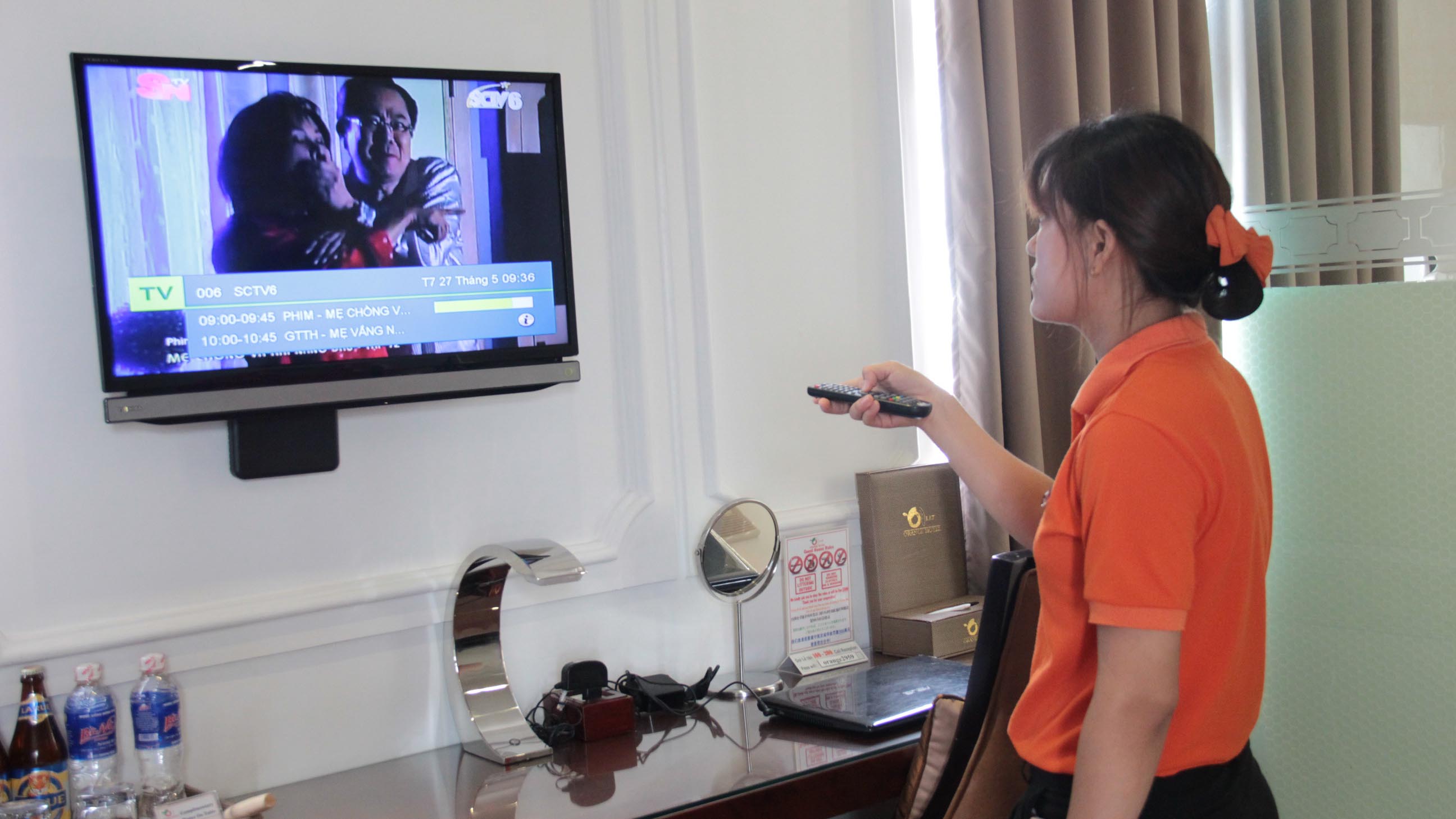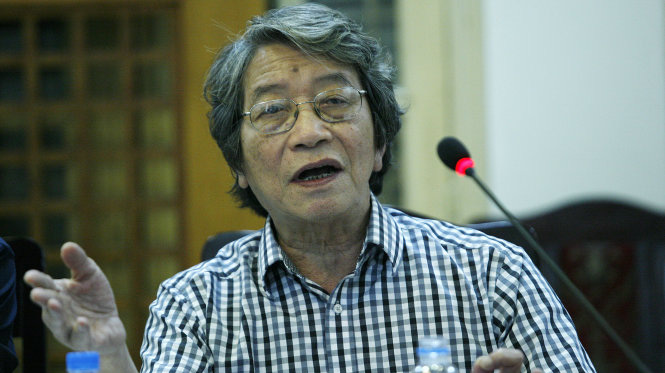The director of a music copyright watchdog is insisting that hotels pay up for music that could potentially be consumed through television sets in their rooms, whether or not guests actually use their TVs.
Pho Duc Phuong, director of the Vietnam Center for Protection of Music Copyright (VCPMC), says that while the center cannot prove that a guest is exposed to music on the TV in their hotel rooms, “hotels still owe copyright fees for music consumed via TV.”
Phuong is a songwriter himself.
The VCPMC said earlier this week that from the fourth quarter of this year, all hotels regardless of cost or quality rating, will be sent a VND25,000 (US$1.11) bill for each room with a television set.
The collected fees will be paid to music authors and songwriters whose artwork is used in TV programs.
The VCPMC has consistently stood by its argument that hotels pay licensing fees, despite the Copyright Office of Vietnam confirming that the center must be able to prove hotel guests have watched TV in their rooms.
“Guests may not watch TV in their hotel rooms, but televisions capable of airing copyrighted works protected by our center are still installed in the rooms, so the hotels are responsible for paying the fees,” Phuong said when asked by Tuoi Tre (Youth) newspaper to comment on the copyright office’s view.
The center director admitted that “no one can prove whether or not guests watch TV in their rooms," but by having TVs installed, hotels are considered to have created “conditions for tenants to access musical works whose authors have authorized us to collect copyright fees on their behalf."
“So, hotels have to pay us, regardless of whether or not their guests ever watch TV,” Phuong concluded.
 |
| A staff member turns on a TV set at a hotel in Da Nang, central Vietnam. |
No need to prove, simply pay us
Even if the center could not prove whether or not guests watched TV in their hotel rooms, Phuong believes that it would still be unnecessary to verify if guests watched music programs or programs with songs protected by his center.
“At present we don’t have enough tools and measures to identify which shows are watched in hotel rooms or whether guests watch music programs or not,” he admitted.
“That’s why we apply a fixed annual rate of VND25,000 to each hotel room with a TV set installed.”
Phuong went on to say that the fee means “hotels only lose VND2,000 a month for each room with a TV set.”
“And the collected fees, once divided between the four million foreign authors and 4,000 Vietnamese authors who have authorized us to collect copyright fees for their works, only equate to a few pennies per artist,” he said.
“Even though the fee is minimal, it is our center’s responsibility to collect it on behalf of musical artists.”
As not all song authors authorize the VCPMC to protect their copyrights, it is possible that a TV program could broadcast non-VCPMC protected songs.
In that case, the center has no right to collect fees for those works.
However, Phuong says that scenario is unrealistic, adding that the center currently “protects 80 percent of all music produced around the world.”
Phuong believes his center is only “trying to enforce the law,” implying that the media and members of the public should appreciate their effort instead of blasting their initiative.
“Should we just stop enforcing the law simply because we don’t have the tools and techniques to name specific songs played on TV?” he said.
Like us on Facebook or follow us on Twitter to get the latest news about Vietnam!




















































